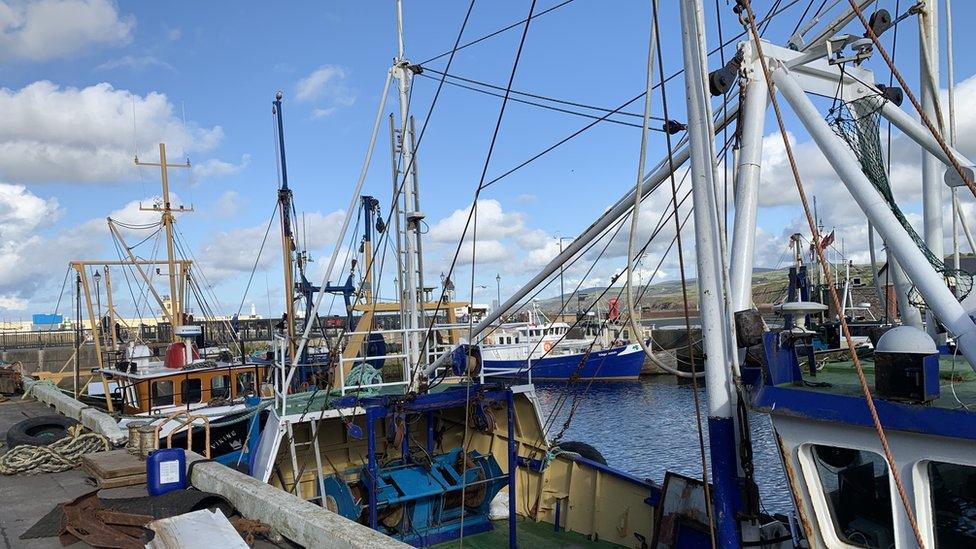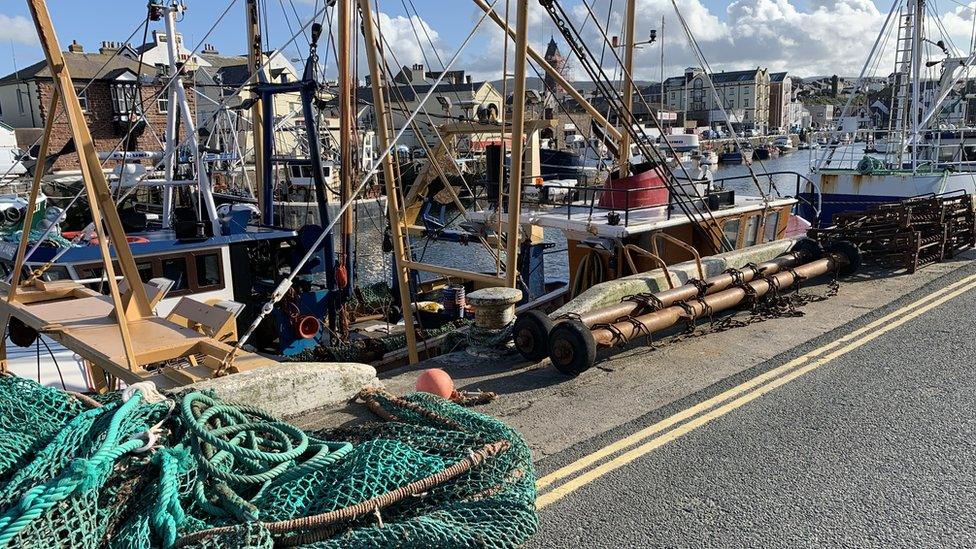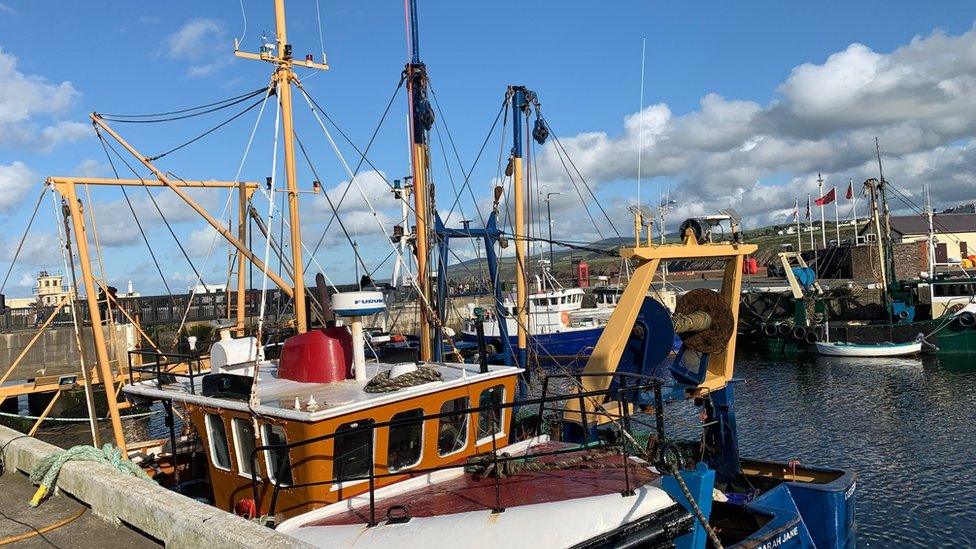Manx fishing industry body warns of too many boats fishing for scallops
- Published

A daily catch limit of 700 kilograms remains in place for Manx and UK fishing boats
The number of boats catching scallops in Manx waters must be cut to protect stocks and make the fishery profitable again, the industry's body has said.
The Manx Fish Producers Organisation (MFPO) warning comes after the king scallop season began on Monday.
A daily catch limit of 700kg has remained in place this year, with 83 vessels licensed to fish.
David Beard of the MFPO said, although the limit was needed, it made fishing "almost uneconomic at current prices".
The Department of Environment, Food and Agriculture (DEFA) has kept a total allowable catch of 2,049 tonnes in place for the season, which runs from November to May each year.
'Race to fish'
Mr Beard said: "If we can survive at this relatively low catch limit, in a year we can make it a profitable fishery, but we have got to get the numbers right."
However, he said "every UK scallop fishery" was facing "exactly the same problems".
"They all find out that there is just too many boats, and if you have a total allowable catch in any given area, it just becomes a race to fish, and then the boats move on to another area," he said.
"That model doesn't work anymore, it just doesn't work," he added.
Earlier this year, DEFA and the Scallop Management Board jointly consulted on a plan to restrict future access to fishing in Manx waters to ensure a "prosperous and sustainable fishery".
The king and queen scallop fisheries were estimated to be worth around £20m a year to the Manx economy before the impact of Brexit and Covid-19 saw prices drop and costs rise.
About 90% of the island's scallops are sold to the EU, and Mr Beard said while the market is still there, prices were "nowhere near" pre-Covid levels.

Why not follow BBC Isle of Man on Facebook, external and Twitter, external? You can also send story ideas to IsleofMan@bbc.co.uk, external
Related topics
- Published9 August 2021

- Published18 June 2021

- Published7 October 2020
